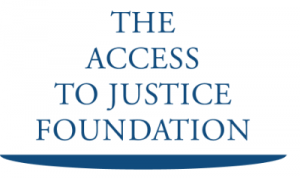Legal Support for Litigants in Person (LSLiP) grants programme report
The Legal Support for Litigants in Person grants programme report which was published last week demonstrates the pivotal impact of early intervention on people, places, and communities most in need.
95% of users accessing support through grantee organisations found suitable assistance, developing a deeper understanding of their problems and potential legal remedies. This intervention not only bolstered their grasp of possible legal outcomes but also empowered them with actionable steps for their issue’s resolution, resulting in a positive self-assessment from 75% of users.
Frontline organisations at local and regional levels emerged as key players in facilitating early resolutions. Their provision of initial generalist advice (72%) and pre-court guidance (11%) underscored their role in addressing issues before they escalated. Their efforts significantly reduced the need for court representation, emphasizing the importance of early support.
Legal advice played a crucial role in reducing stress and anxiety associated with these problems. Service users experienced heightened confidence (57%) in addressing their issues independently, and 59% resolved their problems without resorting to court or tribunal appearances, highlighting the positive mental health impact of timely support.
The user base accessing frontline services displayed diverse social welfare needs, often with overlapping issues. While these organisations dedicated 85% of support to key areas like family, employment, housing, and welfare benefits, the demand consistently outpaced available resources. Housing advice needs surged from 8% to 29%, while support for employment issues declined from 36% to 17% between Oct-Dec 2020 and Apr-Jun 2022, signifying evolving needs and capacity challenges.
Amidst the pandemic, strengthened partnerships between advice providers and community-based groups enhanced outcomes for vulnerable individuals and communities. Collaboration was pivotal in delivering effective projects, while formalized referral pathways expanded the depth and breadth of support, showcasing the resilience of interconnected networks in aiding those navigating legal complexities.
You can find the full version of the report here.
